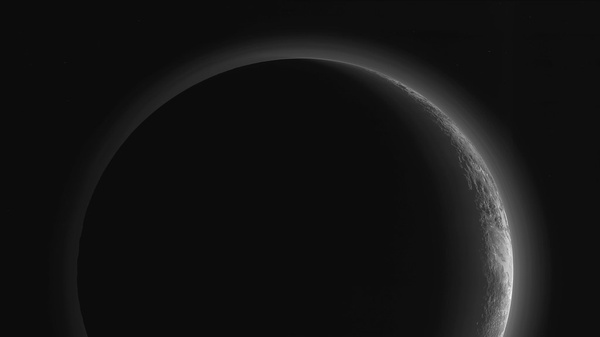Doomed to Dwarfdom? Pluto, a Lost Cause.

Pluto. The lost planet, doomed to dwarfdom. Online, many people find solace in Pluto’s story, a planet who had its classification stripped away. However, why exactly do so many resonate with this speck in the sky?
“[Pluto] just doesn’t fit our new definition of what a planet is,” astronomy instructor Emilee Isenhower said.
Pluto’s long history of arbitrary titles and namesakes began with its discovery in 1930. From then on, Pluto was considered a planet until 2006, when it was demoted to the title of “dwarf planet” by the National Aeronautics and Space Administration (NASA). Upon discovering that Pluto did clear its orbit as other planets in our solar system do, its status was revoked.
“[Pluto’s declassification] upsets me,” freshman Devin McLaughlin said. “It should be a planet all the time; it has been from day one.”
Shortly after Pluto’s demotion, public outrage began. So many were taught that nine planets make up our solar system; now they were left with eight for seemingly little reason.
“It’s kinda stupid to label these things,” freshman Spencer Helms said. “Maybe Pluto doesn’t meet all the regulations to be a planet, so what?”
Many criticize NASA’s decision to redefine Pluto, seeing these titles given to celestial objects as nothing more than arbitrary.
“Why not just let things exist? Why do we have to put labels on them?” McLaughlin said.
NASA’s labels have their fans, those thankful for the classifications given to them in order to sort out the stardust surrounding Earth. However, these fans are no match for the “Free Pluto” lobbyists of the internet.
“You’ll never be able to put a label on everything, and you definitely won’t ever be able to understand everything,” Helms said.
An online movement known as “Free Pluto” lobbies for Pluto’s planethood to be restored, arguing that scientists just use labels as a way to understand the universe that they already see as a cosmic accident. Many are forced to ask: why try and understand what we have no control over?
“What does our existence mean? So if all we are is here to study the universe around us, then that’s a beautiful thing,” Isenhower said. “The more that we discover about the universe, the more we can learn about us, what our purpose is here.”
Despite many years of controversy, NASA has been fairly rigid on their classification of Pluto. However, not all hope is lost for the “Free Pluto” movement.
“The beauty of science is that our definitions can change,” Isenhower said. “If we learn something new, we can change what we thought we knew.”

EDEN WALKER’s first love is writing. Having spent two years on staff already, they are excited to see what their third and final year writing for...


